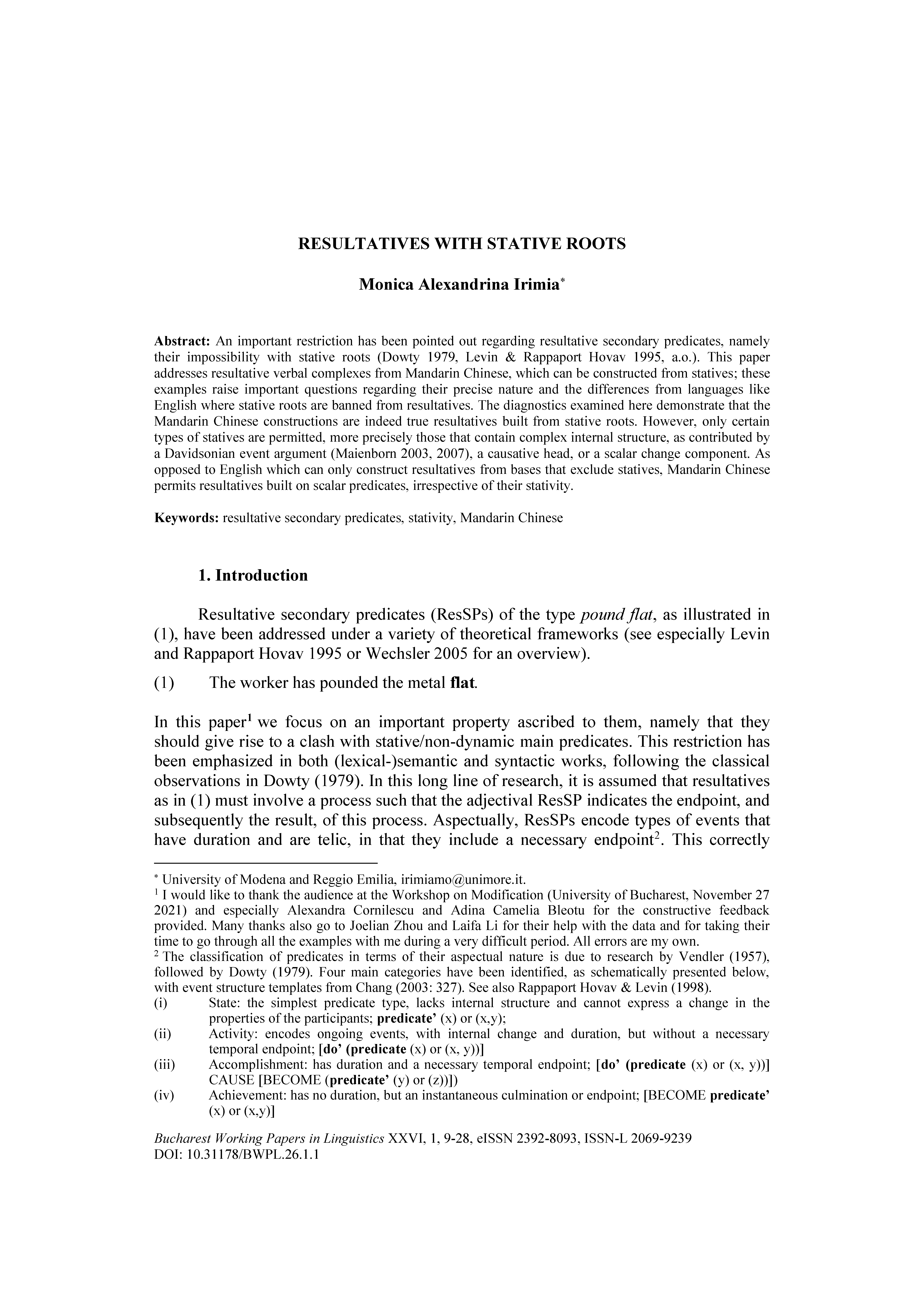RESULTATIVES WITH STATIVE ROOTS
DOI:
https://doi.org/10.31178/BWPL.26.1.1Keywords:
resultative secondary predicates, stativity,, Mandarin ChineseAbstract
An important restriction has been pointed out regarding resultative secondary predicates, namely their impossibility with stative roots (Dowty 1979, Levin & Rappaport Hovav 1995, a.o.). This paper addresses resultative verbal complexes from Mandarin Chinese, which can be constructed from statives; these examples raise important questions regarding their precise nature and the differences from languages like English where stative roots are banned from resultatives. The diagnostics examined here demonstrate that the Mandarin Chinese constructions are indeed true resultatives built from stative roots. However, only certain types of statives are permitted, more precisely those that contain complex internal structure, as contributed by a Davidsonian event argument (Maienborn 2003, 2007), a causative head, or a scalar change component. As opposed to English which can only construct resultatives from bases that exclude statives, Mandarin Chinese permits resultatives built on scalar predicates, irrespective of their stativity.




